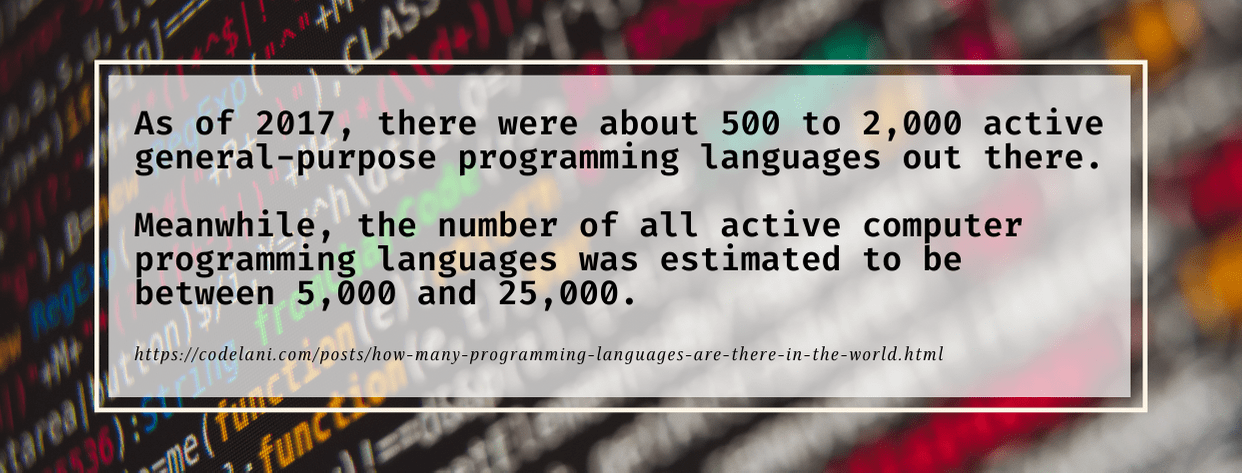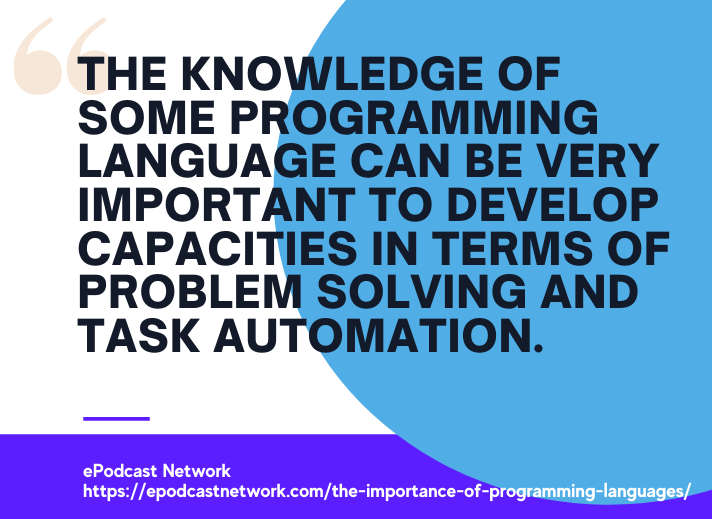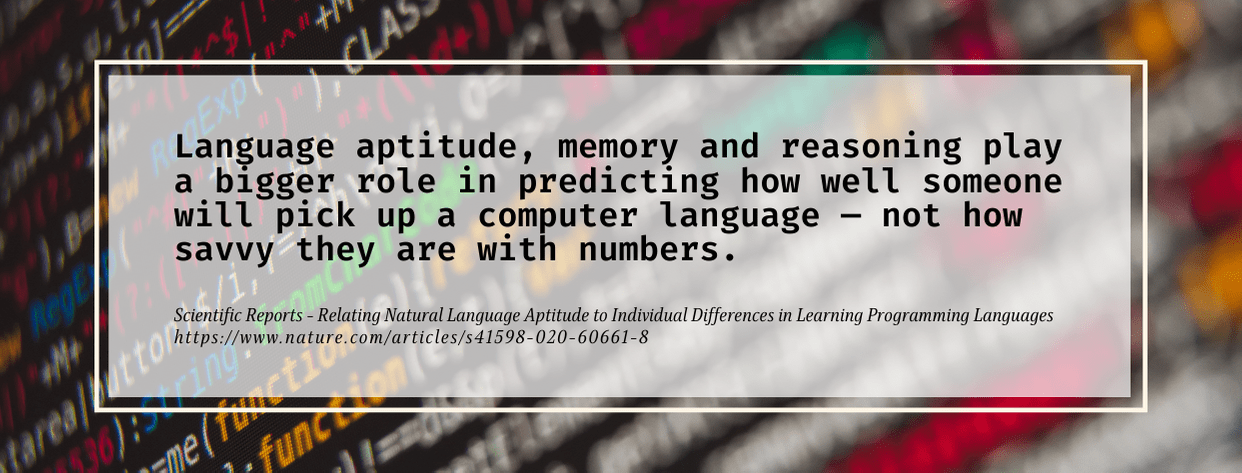Computer Programming provides users with the opportunity to create a set of instructions for computers in a language that these devices understand. Like many other human-based languages, there is a diverse range of computer programming languages that software developers or programmers can implement to communicate with computers. With programming languages, computers can efficiently and quickly process a complex and massive amount of data and other processes.
For instance, if an individual is provided with random digits, ranging from 1 to 20,000 and is instructed to arrange them in descending order, chances are it’ll take a lot of logic, effort, time, and errors to come up with an efficient code.
In this article, we will be highlighting less the technicalities of the programming languages and instead focus on the right Programming Language Exams that determine your capacity for success in related jobs.
Check out these essential links that would help you explore All About Programming Language Exams:
What Are Programming Languages Exams?
Purpose of Programming Language Exams
What is the Common Structure of Programming Language Exams?
Getting to Know the Different Computer Programming Languages
Best Programming Languages to Learn
Top Sites for Reviewing Programming Language Exams
*Google Tech Dev Guide
* BitDegree
* JavaTpoint
* GeeksforGeeks
* Studytonight
* Khan Academy
* The Odin Project
* W3Schools
* Code Academy
What Are Programming Language Exams?
Programming Language Exams go by a set of standards to, ultimately, identify an individual’s competence in the field. Applicants showcase their knowledge in coding so recruiters can evaluate those skills effectively and objectively and, ultimately, properly screen the candidates for employment.
In the academe, Programming Language Exams evaluate students’ technical skills and logical thinking. They are conducted as either paper-based or computer-based exams.
Paper-based programming language exams let students write fragments of code without the aid of any computer or device. An advantage of facilitating written programming language exams is that they eliminate plagiarism and avoid copying fragments of code found online. Although more tedious, a paper-based programming language exam and its outcome are a reliable tool for understanding a student’s capacity to grasp programming concepts.
On the contrary, computer-based programming language exams provide a more comprehensive coding environment. Because the codes are through a compiler, examinees can immediately verify whether their code is working efficiently or encountering compiling errors. The compiler allows computer programmers to see which part of their code is creating the error. The process of determining the syntax error in a programming solution and fixing them is called debugging.
An equally important component of a programming language exam is the delivery method. If you’re still pursuing a Computer Science degree in college, you’ll be studying a blend of written and computer-based exams. In general, instructors enable students to answer technical exams by writing a fragment of code through pen and paper. They also gain a complete overview of the student’s comprehension of programming-related problems. After their lectures, instructors conduct laboratory sessions wherein students get the opportunity to use a computer and write actual programming solutions.
Employers also conduct programming language exams using computers. Depending on the company’s standards, these exams may or may not be proctored.
By now, you’re probably wondering which method of programming language exam is best. Short answer: it depends on the examinee. Whether you’re comfortable with a written exam or computer-based exam, the main objective is to assess your proficiency to create programs effectively.
Purpose of Programming Language Exams
Evaluating a software developer’s or programmer’s coding proficiency is a crucial step in any recruiting or academic-related process for Computer Science-related professions. One of the main challenges of finding the right candidate is to look for satisfactorily-skilled individuals when it comes to programming.
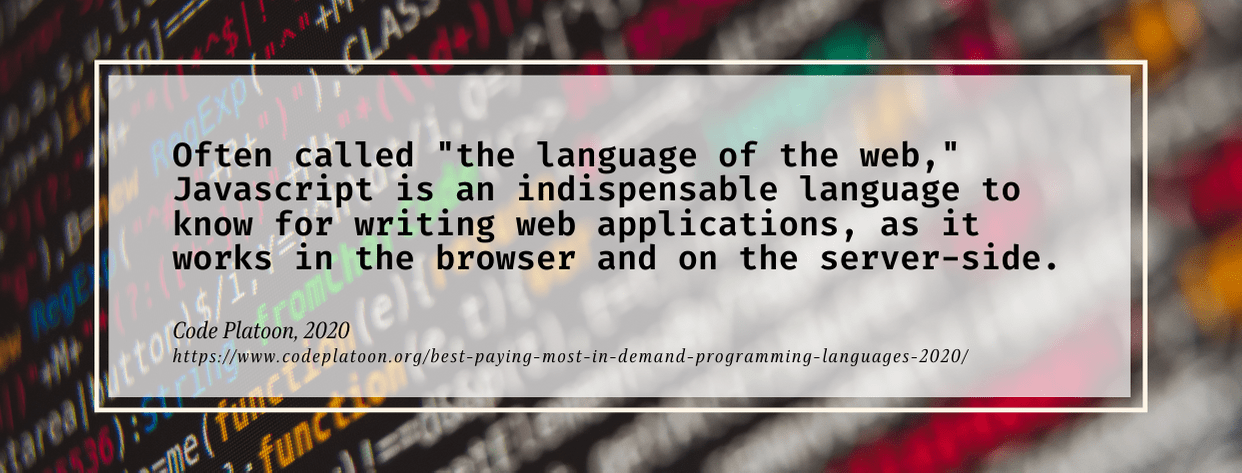
For students in Computer Science, I.T., or any related field, programming language exams are used to assess a student’s coding skills. They determine whether a student has the ability to write efficient code rather than just memorizing concepts. In some cases, students are good at remembering definitions and technical jargon; however, they’re not entirely capable of writing well-structured and working codes.
In a corporate or startup work environment, most shortcomings in technical recruitment are employing candidates with a lack of technical aptitude. Software developers aren’t always the best at marketing themselves on their resumes. As a result, hiring managers miss out on the opportunity to hire a more technically-proficient candidate (because they aren’t impressive on paper). Also, self-proclaimed aptitudes are sometimes misleading. If you’re more impressed with resumes instead of actual skills, you may hire someone who isn’t proficient in the real-world application instead of the real deal.
A variety of talents and skills can mold a competent software developer. That said, the assessment of technical skills is the way to go for finding the best candidates. Regardless of whether you’re studying or working, hiring managers or admission officers don’t rely on resumes and multiple-choice questions alone to measure a candidate’s ability to code effectively.
What is the Common Structure of Programming Language Exams?
The structure of programming language exams for every school or company is unique. Since computer programming is a diverse field, there is no fixed format and content in every programming exam.
Programming language exams consist of situational problems that require technical solutions. For example, one of the most common practical exams for Computer Science majors is writing a program for a basic calculator. In some cases, instructors ask students to write a fragment of code for fixing an error, creating a technical solution to a specific situation, or determining which part of the code results in a syntax error.
Aside from technical skills, some instructors include the definition of terms and multiple-choice questions. Regardless of the content of a programming language exam, the goal is to measure a student’s programming knowledge and capabilities.
In the I.T. industry, programming language exams help recruiters identify the best candidate for specific roles. They are sometimes referred to as technical exams. Because there are different kinds of I.T.-related careers, every job vacancy has an equivalent programming language exam.
For example, a candidate for a database administrator role completes a programming exam that is primarily focused on database-related programming languages such as SQL, PostgreSQL, MySQL, or FoxPro. Depending on the position they are applying for, you can’t offer a database-related programming language exam to someone who is applying for a front-end developer position unless they are transitioning to that field.
Also, the programming languages that are used by a company is one of the factors that determine the nature of the exam. If you’re highly proficient in C# only, it may be challenging for you to apply to a company that uses Python.
Another factor of programming language exams is that they may include non-technical aspects such as multiple-choice and essay questions. Here are some of the common questions that are included in these types of exams:
- How would your personality and capabilities contribute to our company?
- What is the latest programming language you have learned?
- What is your favorite programming language?
- What is the latest programming project you’ve developed?
- What’s the most challenging part of being a programmer?
- What do you love the most about computer programming?
- What is the first programming language you’ve studied?
At the end of the day, the best way to succeed in every programming language exam is to prepare and update your skills and knowledge – regardless of the position or degree that you’re pursuing.
Getting to Know the Different Computer Programming Languages
If you’re starting in the field of Computer Science, you should know that there are hundreds of different programming languages. In case you didn’t know, the ever-popular “Hello, World” statement is your first introduction to learning a new programming language! It is a confirmation that your program is working on the basic level successfully. You can write this statement in more than 600 programming languages; visit The Hello World Collection to learn about it and identify the different programming languages currently available.
It’s easy to be overwhelmed by the sheer number of programming languages available, but don’t you don’t have to! You can choose a specific programming language and specialize in that area. Here are some of the programming languages you can specialize in:
Database Development
Database managers/database administrators or database developers create and maintain different kinds of databases for the company. If you want to pursue a career that involves designing, maintaining, and optimizing databases, you may specialize in the following programming languages:
- PostgreSQL
- dBase
- FoxPro
- MySQL
- SQL
- Visual FoxPro
Game Development
One of the most interesting and creative tracks in computer programming is game development. Many software developers love this track, and most of them create games as a passion and hobby. Developing games requires a game engine or console, software for building and defining games, and their nature. For example, Fortnight and Epic Games is one classic example of defining the concept of a gaming engine. Epic Games is the developer/game engine, while Fortnight is the game itself. If creating games are your favorite programming track, here are some of the programming languages you can venture:
- C++
- C#
- Lua
- Java
- C
- Darkbasic
Hardware/Computer Drivers
Computer programming hardware interface and drivers are one of the essential components of hardware functionalities. If developing software and hardware interfaces for hardware components are your thing, you can specialize in the following:
- C
- Assembler/Assembly
Mobile Development
Developing mobile applications is one of the most challenging aspects of computer programming. Since there are many operating systems for web and mobile apps, it can be challenging yet fulfilling for mobile developers to create programs that are compatible with web and mobile operating systems. For instance, the two most popular operating systems for mobile development are iOS and Android. As mobile developers, you need to create a program that’ll work efficiently regardless if it’s on an Android or iOS device. If a career in mobile development appeals to you, you can start learning some of these programming languages:
- Kotlin
- Java
- Objective-C
- Swift
- JavaScript
- Dart
Script Development
Scripting is a part of your routine as a software developer. Although it doesn’t have a dedicated type of career, understanding and knowing how to create scripts can help you in improving and automating your program in a variety of ways. Some of the programming languages you can learn include the following:
- Tcl
- Python
- Perl
- Batch File
- Bash
- AWK
- AutoHotkey
Web Development
If you’re keen on developing websites or web applications, there are two main components that you can pursue.
- Front-End Development
Front-End Development is part of web development that deals with the design and user interface of your app. It involves adjusting the behavior, colors, and style of buttons, dialog boxes, forms, and other elements of design. Its primary concern is the look and feel of your website. If you want to venture into this field, here are some of the languages you can learn:
- JavaScript
- CSS
- HTML
- XHTML
- Back-End Development
Back-End Development is an aspect of web development that mainly focuses on servers. This type of computer programming pertains to the routing of web pages. Routing is the process of redirecting the user to a specific website’s page when they visit its URL. The process involves communicating with the servers and transmits the data back to the user. For back-end developers, you can start with these programming languages:
- PHP
- Ruby
- C#
- Elixir
- Python
- Erlang
As mentioned, there are numerous programming languages; however, we highlight the most popular and relevant in today’s industry. We also recommend learning a programming language that you are passionate about or your target industry is primarily using. Ultimately, it’s up to you on which programming language you want to specialize in.
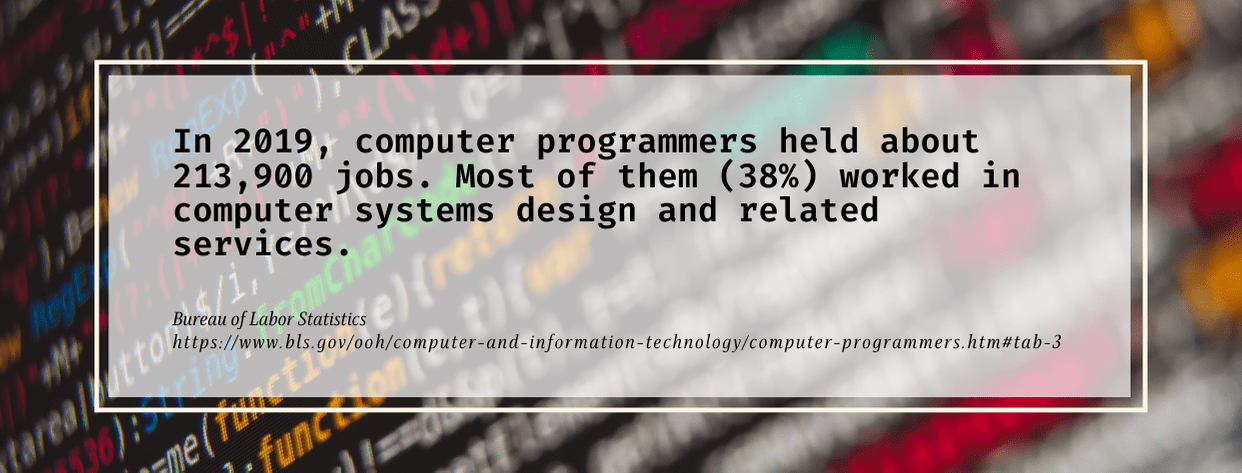
Best Programming Languages to Learn
At this point, you’re probably curious about the right programming language to venture into. If you’re learning how to code, you might as well specialize in understanding the languages that are highly marketable in the current trend. As a result, focusing on the latest programming language will make you more relevant and competitive to prospective companies or employers. Here are some of the viable programming languages that you can learn:
- Python
Python is the computer programming language of modern times. A growing number of organizations and startups are implementing programs and apps using Python. If you want to become relevant for a more extended period, this is the programming language you should study. It’s considered the programming language of the future. Software developers who are skilled in Python are one of the highest-paid professionals in this industry. Because of its vast library of integration and support, and efficiency, Python is a leading programming language widely used as a primary backend programming.
- PHP and Java
PHP and Java have been widely used in most companies and organizations for a long time. The majority of companies that have been around for many years use Java as the primary backend programming language. Speaking of financial institutions, they all utilize Java for their online banking apps, core banking procedures, and databases. Also, some of these institutions use PHP for website design.
- Golang and C++
C++ has been in the industry for a longer period of time, while Golang is a new programming language. If you’re planning to pursue a career in algorithmic trading and finance, you should learn and become skilled in Golang and C++. In different trading industries, C++ and C combination is mainly used. Golang is also becoming popular in this aspect. Both Golang and C++ are great for creating low latency and performance-critical systems that are considered an essential component of every trading institution. If you are considering learning the language, you should also know the basics and the ins and outs of Object-Oriented Programming.
Top Sites for Reviewing Programming Language Exams
Google Tech Dev Guide
The Tech Dev Guide, developed by Google, provides you with the opportunity to practice your coding skills and improve them. Everyone is free to learn and review any programming fundamentals with this platform. Tech Dev Guide consists of different kinds of learning resources, ranging from coding interview questions to practice problems and career preparation materials. Regardless if you’re a beginner, advanced programmer or career shifter, Google’s Tech Dev Guide has a plethora of learning materials for reviewing for programming language exams.
BitDegree
BitDegree provides you with numerous free courses, ranging from game development to programming. The platform has standard learning courses as well as gamified courses. With gamified classes, you can integrate a more interactive and productive learning environment. All you need to accomplish is to select your preferred language and begin your learning path.
BitDegree has a diverse range of programming languages; however, the popular recommendations include:
- CSS
- HTML
- JavaScript
- JQuery
- PHP
- SQL
This learning platform also integrates blockchain programming in one of its learning materials. There are transparent recognitions and an achievement system, helping companies and businesses recruit suitable tech candidates and evaluate the course progress of each candidate.
JavaTpoint
JavaTpoint offers tutorials on different challenges related to computer science and modern technology. It is a one-stop-shop website for everything you need to know regarding different kinds of programming languages, including newer ones such as Kotlin. JavaTpoint also teaches you about the latest updates and developments of emerging technology such as Artificial Intelligence and Cryptocurrency.
For tech interviews, JavaTpoint also offers ideal answers to technical questions.
GeeksforGeeks
GeeksforGeeks is one of the best websites to prepare for programming language exams and technical interviews. The website offers different kinds of solutions, ranging from beginner-friendly questions to more advanced and technical ones. GeeksforGeeks also provides an interactive and functional IDE so you can test and modify your codes. Some of the popular programming languages offered in GeeksforGeeks include Python, Java, and C.
Studytonight
Studytonight is an online learning platform that teaches different programming languages and technical subjects. Unlike other online tutorials, Studytonight helps you learn in-depth knowledge regarding computer science-related core subjects. Some of the essential topics you can learn and practice on Studytonight include C++, Apache, Scrum, Unity, Python, SQL, Mongo, CSS, C, Java, operating systems, and computer networking fundamentals.
Through Studytonight, you can prepare for programming language exams via a series of practice exams to evaluate your understanding. The practice tests can serve as tools for recap and revision.
Khan Academy
Another top site for learning how to program is Khan Academy. It’s one of the most popular online learning platforms for computer programming. Khan Academy is an excellent platform to start creating a plethora of programming-related skills and expertise. Through this platform, you can access different kinds of tutorials and courses, ranging from computer programming fundamentals to advanced applications.
Well-trained professionals teach Khan Academy courses. Students are also encouraged to share their learnings throughout the learning process. The platform allows you to specialize in a particular programming language you want to pursue, such as the following:
- JavaScript
- Python
- CSS
- HTML
- SQL
The Odin Project
One of the most interactive sites for preparing for programming language exams is The Odin Project. It is for anyone who also wants to become proficient in a specific programming language. For your computer programming needs, everything you need to learn is available through The Odin Project. The platform also teaches you to create your own applications, games, websites, and projects along the way. To help you with your projects, The Odin Project has an active community for asking questions, starting a forum, or meeting like-minded developers.
Also, the curriculum available in The Odin Project is developed in a modular way, making browsing through lessons easier and more convenient.
MDN Web Docs
Formerly known as Mozilla Developer Network, MDN Web Docs is the primary website of Mozilla for the development of different Mozilla projects and documentation of web standards. It is a learning resource for developers, containing many documents on a diverse range of topics, such as WebExtensions, JavaScript, Web APIs, CSS, and HTML5. For mobile application developers, MDN Web Docs offer documentation of topics such as location-tracking apps, developing mobile add-ons, and creating an HTML5 mobile program.
W3Schools
W3Schools is integrated with programming exercises, examples, resources, and tutorials to help you become a skilled programmer. It has been around for a long period of time and is one of the widely used websites for learning computer programming fundamentals through the web. W3Schools’ content include XML, AJAX, JQuery, SQL, AngularJS, HTML, JavaScript, and CSS. Its slogan, i.e. “The World’s Largest Web Developer Site” remains true to its advocacy. Hence, W3Schools has received over 10M unique visitors from anywhere around the globe.
Code Academy
One of the free platforms to prepare for a programming language exam is Code Academy. Over 24M has learned how to write codes using Code Academy. This platform delivers courses, ranging from introductions to computer programming to more complex programming languages. With more than 300M hours of free programming materials, you can prepare yourself to succeed in a programming language exam by putting your technical skills to practice.
Some of Code Academy’s core programming languages include the following:
- Ruby
- Python
- PHP
- jQuery
- CSS
- JavaScript
- HTML
Unlike any other exams, preparing for programming language exams aren’t only limited to memorization and definition of terms. They don’t evaluate candidates based on a person’s technical skills and knowledge alone, but also their logical and analytical skills. That said, programming language exams require aptitude to write specific programming languages of choice and apply them to real, practical problems. The field of computer science/I.T. is an extremely diverse field. Hence, you should find a suitable programming language that you want to specialize in unless you want to become a full-stack developer. Regardless of whether you want to become a game developer, script developer, or database developer, practicing for a programming language exam is crucial to your academic success or future career.
